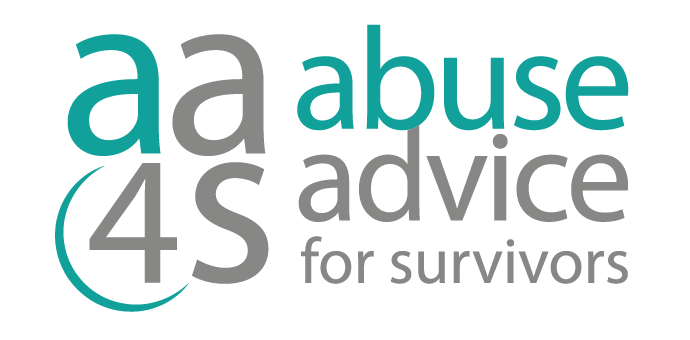The legal world is full of language and legal terms which anyone not legally trained may find difficult to understand. Whilst we have aimed to use clear English throughout this web site, below are some legal terms which are commonly used in abuse litigation, each with an explanation as to its meaning. Click on the relevant letter of the alphabet below:
When you select a letter, all examples will be displayed underneath the alphabetical list.
- Allocation Questionnaire
- A document sent to each party by the court after a Defence is filed in Court; asks for information to enable the court to allocate the case appropriately and give Directions on what steps are to be taken in the case before trial.
- Alternative Dispute Resolution
- Any method of resolving your dispute without going to Court.
- Application Notice
- A document in which a party to the case states their intention to apply to the Judge for a specific court order.
- Case Management Conference
- A Court hearing in which the Judge gives “case management directions” on how the case should proceed up to trial. For example, he may give the parties a certain amount of time in which to send to each other a list of documents they intend to rely upon in the case. Any timetable has to be adhered to.
- Civil Law
- The law regarding the rights of citizens.
A civil case is where one person sues another person, or an organisation or limited company. The object of the case is usually compensation.
This is to be distinguished from a criminal case, which is where the police bring charges against an individual with the intention of having him/them punished by the Court for a crime they have committed. In this sort of case, the police act on behalf of the public, and bring the case on behalf of society in general.
- Claim Form
- The document which starts the majority of Court proceedings (previously a ‘Writ’ or ‘Summons’).
- Claimant
- The party bringing the case to Court.
- Conditional Fee Agreement
- An arrangement otherwise known colloquially as a “No Win No Fee Agreement” between a solicitor and client whereby the solicitor takes a success fee out of compensation if he wins, but guarantees that if he loses, he will not render a bill of charges to the client.
This type of agreement, however, does not protect a Claimant from having to pay legal costs of the Defendant if he loses. Under the current law, it is only in very few circumstances that such an order can be made. It is possible to take out insurance from an “After the Event” Insurance Company, to protect a Claimant from such as situation happening. Such a policy would also meet the costs of 3rd Party expenses such as Court Fees, Medical Report Fees, etc.
Usually, in a Personal Injury case, which is what an abuse case is, the Defendant, if he wins, cannot claim his costs from the Claimant.The general rule, however, in litigation cases, is that the loser pays the winner’s costs.
The above is a very basic explanation. For more details, contact us.
- Contributory Negligence
- A finding by the Court that the Claimant was partly responsible for his/her own loss or injury by failing to take reasonable care of his/her own situation. As a consequence the Court will reduce, by an appropriate percentage, the amount of compensation payable, e.g. failure to wear a seat belt.
- Counsel
- A barrister. His or her two main functions are firstly providing detailed advice on a specialist area of law, and secondly appearing in Court as an advocate. King’s Counsel or Leading Counsel is a senior barrister.
- County Court
- This is a civil court which hears disputes between two individuals. Abuse compensation cases are often started in the County Court. If they are particularly valuable, or are Group Actions, they would normally be transferred to the High Court.
- Court of Protection
- Responsible for managing the financial affairs of patients or individuals who cannot manage their own affairs either because they are infants or subject to a disability of some type. Their authority is required before an action can be compromised or settled.
It is a Court staffed by public servants in London. The current website is here, or for more detail look at the Ministry of Justice page
- Criminal Court
- Courts which hear criminal cases, brought by the police against criminals such as alleged abusers.
The cases start off in the Magistrates Court, then are transferred to the Crown Court if they are serious enough. Abuse cases normally are heard in the Crown Court, by a specialist judge.
- Defence
- A formal Court document served on behalf of the Defendant in which he responds to the Claimant’s allegations against him and sets out his own case.
In an abuse case it is likely to deny that the abuse took place or that the Claimant is entitled to any compensation.
- Defendant
- The party against whom the action is brought.
- Depression
- Condition in which a person suffers from low spirits; has difficulties in assimilating thoughts and actions and blames themselves for things that they believe are their fault.
- Disclosure
- The process in which a victim begins to communicate to another how they were abused.
- Disclosure (of documents)
- The procedure by which one party informs the other party of the relevant documents or evidence that it holds in relation to the case.
- Dissociation
- A state of mind not uncommon in abuse victims, where the hurtful and intrusive thoughts are set aside and not processed because they are too painful. It is one of the brain’s methods of coping with painful memories. In psychiatric terms it is described as “A psychological defence mechanism in which specific, anxiety-provoking thoughts, emotions, or physical sensations are separated from the rest of the psyche.”
- Elective Mutism
- Choosing not to speak
- Expert Witnesses
- Both sides of a case are at liberty to obtain expert evidence from someone recognised by the Courts as someone with expertise in a certain subject.
n abuse cases, the types of expert often used are Psychiatrists, Psychologists, Social Care Experts, or Independent Social Workers.
Experts are under a duty to behave impartially with no bias to either side even though they are instructed by one side or the other. They are an agent of the Court and are governed by the Civil Procedure Rules Their role is to give their opinion upon a particular specialised subject to the Court.
- Fast Track
- Procedure for straightforward claims valued at above £5,000 (personal injury claims above £1,000) and under £25,000.
- General Damages
- Compensation for pain, suffering and loss of amenity.
- High Court
- The civil court which hears compensation cases above a certain value, or which involves complex issues of law or fact. Abuse cases would normally qualify to be heard in the High Court.
- Hooper Claim
- The County Council of Avon v Hooper and the Bristol & District Health Authority – A Local Authority which provides a service to a person may, under certain circumstances, may ask for the cost of the provision of these services to be repaid to them.
- Inter Partes
- Latin meaning “between the parties”. It is used to mean something that only applies between the people invoved in the case eg Claimant and Defendant as opposed to between the solicitor and client or client and the Legal Services Commission
- Interim Remedy
- A helpful procedure whereby the Court orders the Defendant to pay the Claimant a part of his claim in advance of a full trial. It will be ordered where the Court considers that the Claimant has a strong case and that it would be proper to allow him some of his damages now rather than having to await the outcome of a full trial. The potential disadvantage to the Claimant of obtaining an interim payment order is that if the Claimant then loses at trial he would have to repay the interim payment to the successful Defendant.
- Joint Settlement Meeting
- This is a meeting between the parties to any legal case, usually involving Counsel/Barristers on both sides at an agreed location, which is usually the solicitor’s office of either the Claimant or Defendant, the purpose of which is to try to settle the case on terms acceptable to both parties.
If the meeting is successful, and a settlement agreed, it is usually made the subject of a Court Order, which ensures that the paying party honours the payment of damages and costs agreed at the meeting, and does not renege on payment.
- Limitation
- The time period, usually 3 years from the date of the accident in which Court proceedings must be started but which may be varied particularly in the case of clinical negligence claims. Different time limits apply for children and those “under a disability” and for assault cases.
- Litigation Friend
- A Person acting on behalf of someone under a disability, i.e. a child or a patient.
- Locus
- The place of the accident.
In Latin it literally means “place”.
- Loss of Amenity
- This expression is used in conjunction with General Damages, above and embraces everything which reduces the enjoyment of life.
- Medico-Legal Report
- A report prepared by an expert – in abuse cases it will usually be either a psychiatrist or psychologist – which describes the way in which the injury which is the subject of legal proceedings, has affected the Claimant.
In abuse cases it will document the history of the case, and give an opinion on the way in which the abuse has affected the Claimant, both in the immediate aftermath of the abuse, and thereafter for the rest of his/her life. The report will also comment on the reasons for delay in disclosure, if the case is historic, and make recommendations as to treatment required together with costing.
- Multi-Track
- Court Procedure for claims for which neither small claims track nor fast track are suitable (usually those valued at more than £25,000).
This is the procedure for cases that involve complicated issues of fact or law. Even though abuse claims are often settled for less than £25,000, it is recognised that they qualify for the multi-track Court process.
- Negligent
- Responsible for loss or injury by failing to take reasonable care.
- Official Solicitor
- A Department of Government (albeit completely independent) who often acts as a “Litigation Friend” for a person with a learning disability
- Part 36 Offer
- An offer to settle the claim, made by either Claimant or Defendant – if it is refused and the other side does less well than the offer at trial they may have to pay the costs. If accepted the party accepting will pay costs.
- Plaintiff
- Old fashioned word for “Claimant” used before 1999, meaning the person who brings a claim through the courts in England and Wales.
- Post Traumatic Stress Disorder
- Set of extreme reactions to abuse, including recurrent and intrusive recollections of abuse, recurrent dreams related to the abuse, sense of reliving the abuse, distress and exposure to events, which evoke the abuse. Other symptoms include sleep disturbances, persistent increased arousal, irritability, anger, aggression, hyper vigilance and physiological reactions to events resembling the abuse.
- Pre-Action Protocol
- Regime for parties’ conduct before commencing certain types of claim – negotiated by representatives commonly involved with that type of claim – they do not have the force of Court Rules but their spirit is honoured.
- Prima Facie
- Means literally “at first sight” or in other words “basically”
A lawyer will often say that a client has a good “prima facie” case. This means that after hearing a rough summary of what the client say, he thinks that he has a case which he is prepared to take on that has “legs”, or there are facts which warrant further enquiry and investigation.
After thorough investigation, it could turn out that there is no case because of further evidence that may be presented, discovered, or disclosed, in particular, by the Defendant.
- Psychiatrist
- A medical expert who studies, treats and prevents mental disorders. Unlike psychotherapy, medically trained Psychiatrists may use medication to treat their clients.
- Psychological Closure
- A term often used to describe a state of mind which most victims of abuse aspire to, whereby they are able to shut the door on memories of the abuse, and get on with their lives in a balanced and contented fashion. Some argue that there is no such thing as closure because memories of abuse never disappear completely. The most a survivor can expect is to arrive in a state of mind when the effects of the abuse are manageable instead of becoming overwhelming.
- Psychologist
- Experts who assess intellectual, memory and behavioural problems.
Unlike psychiatrists, they are not medically qualified, but highly trained in treating a wide range of mental disorders by various methods. They are not allowed to prescribe drugs unlike psychiatrists.
They often have vast experience of treating abuse victims.
They are frequently used by lawyers to provide medico-legal reports.
- Psychotherapist or Counsellor
- Provides psychotherapy or counselling, namely regular, clinically supervised sessions with the victim, which are designed to help minimise or assist the victim with the painful memories of the abuse which he or she has or is experiencing.
The cost of counselling or psychotherapy is often part of the claim, which will be itemised in a schedule of special damages.
- Psychotherapy
- Broadly defined as any form of “talking cure”, although non-verbal communications within the therapeutic relationship are also valid. Should be regular, clinically supervised sessions with the client.
- Quantum
- Quantity or amount of compensation.
In Latin, it means “how much”.
- Redress
- To set right, readjust, remedy, or compensate. In the world of Child Abuse, various institutions have set up Redress Schemes which are no fault alternatives to conventional civil litigation whereby the victim/survivor is compensated for abuse in childhood.
- Regime
- A system of control or organisation.
- Res Ipsa Loquitur
- Latin phrase meaning "The facts speak for themselves."
- Ritualistic Abuse
- Abuse committed usually within a cult or society utilising the customs and traditions of that group in order to make into a routine the abusive practices.
- Satanic Abuse
- Abuse committed in the name of Satan, utilising the worship of the Devil to justify the commission of the abuse. Heathen practices including child sacrifices.
- Special Damages
- Money compensation for various items such as lost earnings, prescriptions, travel expenses, or other losses which can be quantified in monetary terms, and which have already been incurred.
- Standard Disclosure
- Usual disclosure order for those documents in the case you intend to rely upon in support of the case, those which adversely affect your own or another party’s case or support another party’s case.
- Statement of Case
- A document prepared by the Claimant for the Court and the Defendant, setting out full details of the claim.
- Statement of Truth
- Verifies all Claim Forms, Statements of Case, any response to request for further information and witness statements – follows standard format – also required for expert reports (different format).
- Statement of Value
- Amount which the Claimant expects to recover at court– required on Claim Form.
- Structured Settlement
- In some large claims, it can be better for the Claimant to be compensated by annual tax-free payments for life rather than having one lump sum. This decision is taken as the claim progresses in the best interests of each client on the particular facts.
- Summary Assessment
- Immediate assessment of costs by Court hearing any application which lasts less than one day – may be extended to trials – parties are to provide estimates of costs of application at least 24 hours before hearing.
- Summary Judgment
- A procedure to enable a Claimant to obtain Judgment in his own favour at an early stage in the proceedings without the need and cost of a full trial. The application is heard on the basis of written evidence alone, without the need to call witnesses. In order to succeed the Claimant must show that there is no real defence to the claim.
- Survivor
- Person who is within therapy orwho has attained emotional distance from his or her sexual abuse.
- Trauma
- Any unexpected experience which a person is unable to assimilate.
- Vicarious Liability
- This means that an “employer” is liable for an act which an employee does directly. The Employer stands in the shoes of the employee. In abuse cases, the law changed in or around 2001 to make the “employer” liable. The term employer is, however, used loosely and has been extended widely to include foster carers, voluntary workers, priests, etc.
- Victim
- Person who is still in trauma following their abuse, either chronologically, emotionally or both.
- Whistle-Blower
- A person who informs the authorities or others of incidents or events, which they feel, should not be allowed to continue. The law does provide employment protection for such individuals.
- Witness Summary
- May be served instead of witness statement where you cannot obtain a statement – by serving a summary you preserve the right to call witness at trial.
- Witness Summons
- A Witness Summons is a document issued by the court requiring a witness to attend Court to give evidence or produce documents to the Court.










